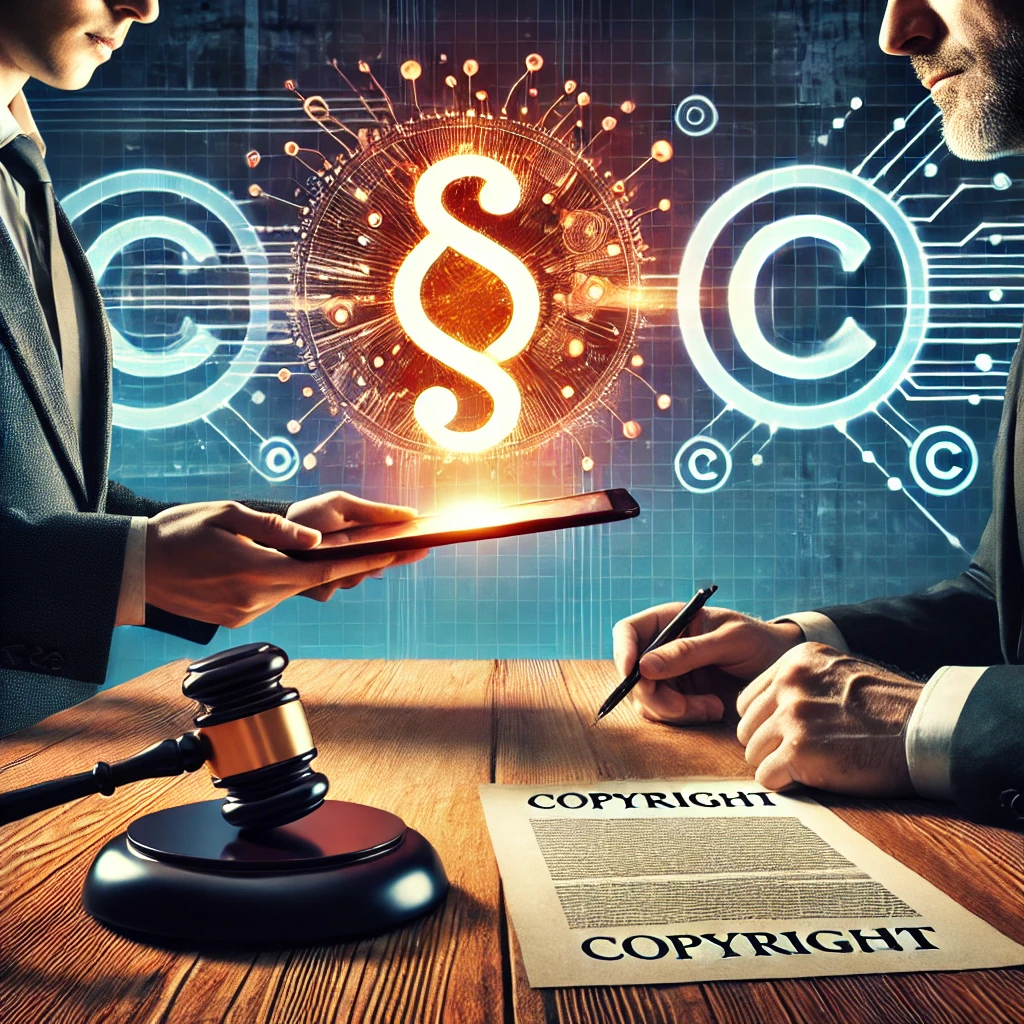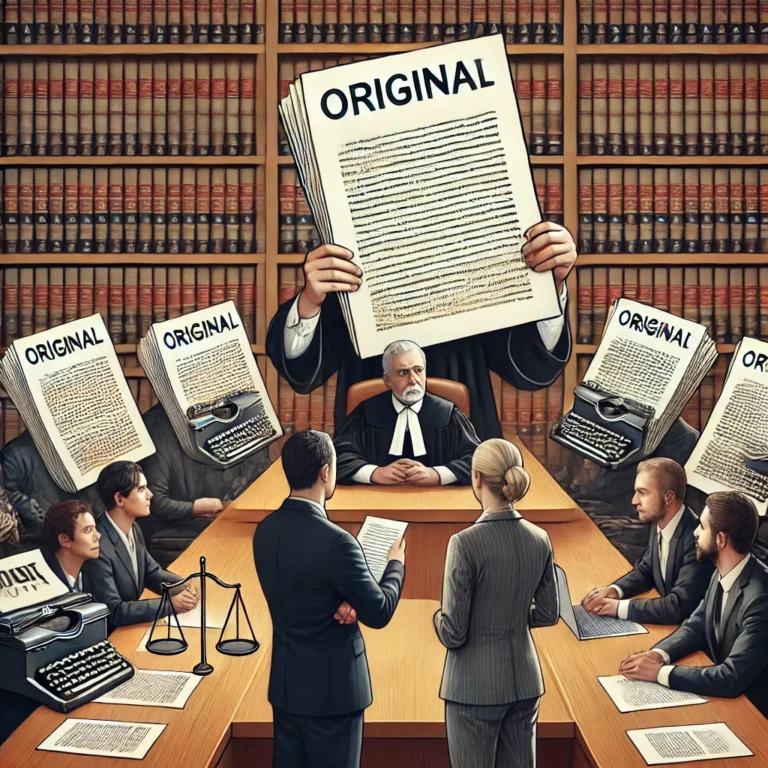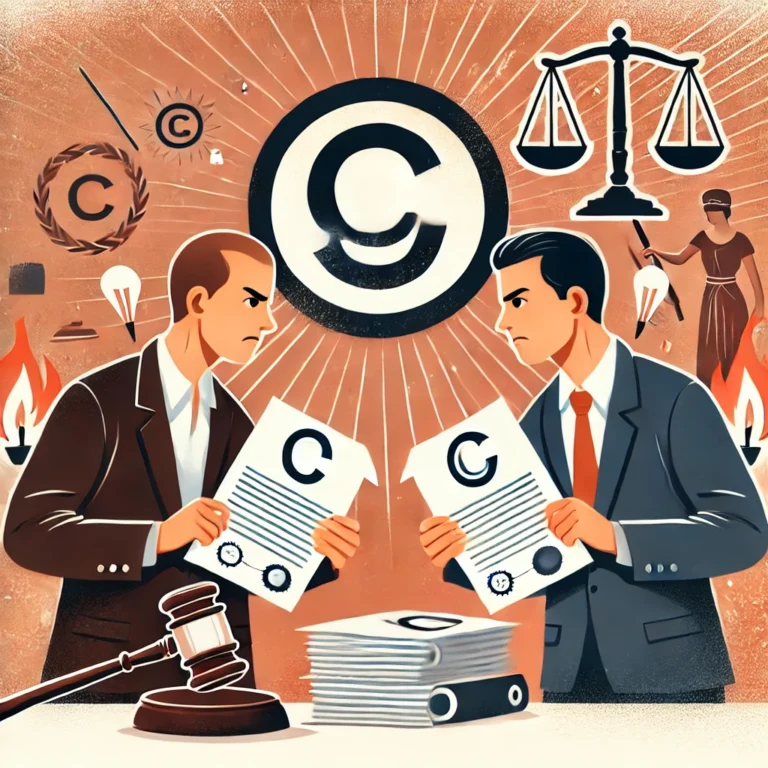Call us now:
Resolving copyright disputes under Vietnamese law. Resolving copyright disputes is a complex process that requires the involvement of various specialized agencies, courts, and often extends over several years.

What is a copyright dispute?
A copyright dispute is a conflict between parties over the ownership, use, or control of a creative work. This work can include literature, music, art, software, or any other form of creative expression. Disputes often arise when one party claims that their copyright has been violated, such as through the unauthorized copying, distribution, or use of the work without permission.
Types of copyright disputes under Vietnamese law
According to Article 62 of Decree No. 17/2023/ND-CP of the Government, copyright disputes include the following:
1/ Disputes between individuals regarding copyright over literary, artistic, scientific works, or derivative works
These disputes arise when two or more individuals claim to be the author or co-author of a literary, artistic, scientific work, or derivative work.
Example: A writer and an editor might dispute who actually wrote a book, or an artist and a designer could argue over who created a painting adapted from another work.
2/ Disputes between co-authors over the division of co-author rights
These disputes occur when co-authors cannot agree on how to divide the rights and responsibilities over a work they created together.
Example: Two musicians co-write a song but cannot agree on how to split royalties and other related benefits.
3/ Disputes between co-owners of copyright over the division of rights in the exploitation, use, or transfer of one, some, or all of the copyright rights
These disputes arise when co-owners of a work disagree over how to exploit, use, or transfer the rights of the work.
Example: A group of software developers who co-own a program might dispute how to divide profits when one of them wants to sell or license the software to a third party.
4/ Disputes between individuals and organizations regarding ownership of copyright over a work
These disputes occur when there is a conflict between an individual and an organization about who the true copyright owner is.
Example: An employee develops software while working for a company and later disputes whether the software belongs to the individual or the company.
5/ Disputes between copyright owners and authors over royalty payments
These disputes involve an author demanding royalty payments from the copyright owner (which could be an organization or an individual who invested in or purchased the copyright) but not receiving payment as agreed.
Example: A book publisher fails to pay royalties on time to an author, even though the author completed the work according to the contract.
6/ Disputes over the exercise of moral rights or property rights of the author, copyright owner, co-author, or co-owner of the copyright
These disputes relate to the protection of moral rights (such as the right to be recognized as the author) or property rights (such as the right to use or transfer the work) of the author, co-author, or co-owner.
Example: An author might demand the cessation of the use of their work if it is being misused or damaging their reputation.
7. Disputes over copyright of computer programs and data collections
This type of dispute often arises between financial backers and the individuals who actually design or develop the computer program or data collection, regarding ownership of the final product.
Example: An investor and a programmer might dispute who the rightful owner of software is after its completion.
8. Disputes over copyright of cinematographic works and stage performances
These disputes occur when there is a conflict between the financial backer and the creative participants regarding ownership and financial benefits from the cinematographic or stage work.
Example: A director and a producer may dispute over who is entitled to the revenue from a film.
9. Disputes between copyright owners and users of published works without permission
These disputes arise when one party uses a work without the permission of the copyright owner, causing financial damage to the author.
Example: A company uses a song in an advertisement without the author’s permission, leading to revenue loss for the author.
10. Disputes over copyright transfer or licensing agreements
These disputes concern the terms of copyright transfer or licensing agreements, such as the transfer value, duration, or scope of use.
Example: An author disputes with a publisher over the publisher exceeding the agreed scope of use in their licensing agreement.
11. Disputes arising from copyright infringement
This is a common type of dispute when one party infringes copyright by copying, distributing, or using a work without the author’s consent.
Example: A website posts films without securing the copyrights, leading to a dispute with the film producers.
12. Disputes over inheritance of property and moral rights
These disputes occur when there is conflict over the inheritance of property and moral rights related to a work after the author’s death.
Example: The heirs of an author may dispute over the right to inherit royalties from the author’s works after their death.
Resolving copyright disputes under Vietnamese law
Resolving copyright disputes is a complex process that often requires the involvement of specialized copyright authorities, courts, and multiple procedural stages.
Most copyright disputes are resolved by the court. When a copyright dispute arises, the party claiming that their rights and interests have been infringed must file a lawsuit at the competent People’s Court to initiate the resolution process.
In more detail, the resolution of a copyright dispute typically involves several steps:
- Filing the Lawsuit: The claimant (the party who believes their copyright has been infringed) files a formal complaint with the People’s Court. The court must have jurisdiction over the dispute, meaning it has the legal authority to adjudicate copyright matters.
- Preliminary Review: After receiving the complaint, the court conducts an initial review to determine if the case meets the basic requirements for litigation, such as the validity of the copyright claim, evidence of infringement, and the legal standing of the parties involved.
- Mediation or Negotiation: Before proceeding to a formal trial, the court may encourage the parties to resolve the dispute through mediation or negotiation. This can help save time and costs. If an agreement is reached, the case may be closed without further litigation.
- Trial: If mediation is unsuccessful, the case proceeds to trial. Both parties present their evidence and arguments before the court. The court then examines the case, including the ownership of the copyright, the extent of the alleged infringement, and any applicable legal provisions.
- Court Decision: After reviewing all relevant information, the court issues a decision. The ruling may include compensation for damages, an injunction to stop the infringement, or other legal remedies as deemed appropriate.
- Appeal: If either party is dissatisfied with the court’s decision, they may have the right to appeal to a higher court. The appellate court reviews the case, and the process may result in a modified ruling or a confirmation of the initial judgment.
- Enforcement: Once a final judgment is rendered, enforcement procedures may be initiated to ensure compliance with the court’s ruling, such as monetary compensation or cessation of infringing activities.
The complexity of copyright disputes often requires legal expertise, and both parties may rely on specialized lawyers to navigate the intricacies of copyright law and court procedures.
Contact Us Now:
DCNH LAW
Address: 38B Tran Nhat Duat, Phuoc Hoa ward, Nha Trang city, Khanh Hoa province, Vietnam.
Phone: (+84) 343320223 – 974278893
Email: dcnh.law@gmail.com


